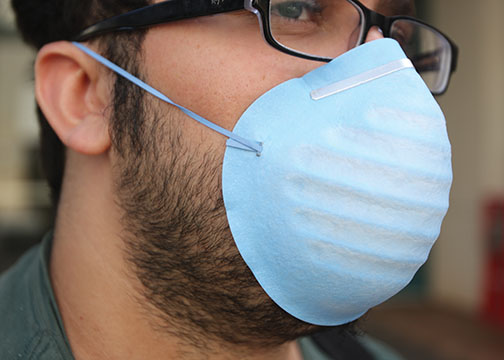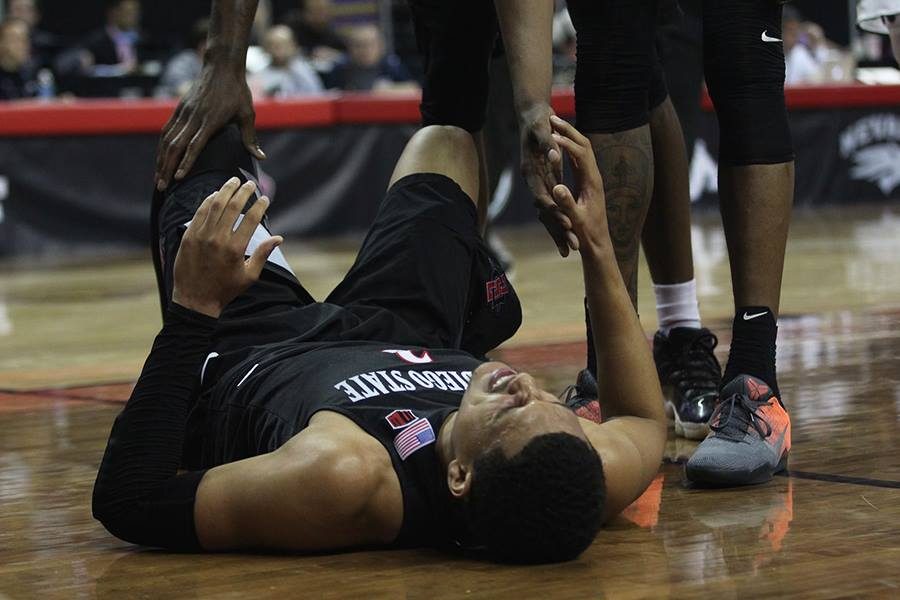As the meningitis scare on campus is dying down, a tragic remorse still clouds San Diego State as we remember Sara Stelzer’s death. This heartbreak shocked students and faculty. It’s a sobering incident that reminds us all to value life and learn about the precautions we must take as college students. It’s difficult to prevent the unexpected, which is why we must take increase knowledge and self-awareness to prevent all future health risks.
It’s important to realize as college students, we live in one of the most common breeding grounds for germs and disease. Whether or not one lives on campus, there is constant exposure to various bacterial and viral strains. Especially for students living in dorms in close quarters with common areas, remaining sanitary and mindful is crucial.
Considering the cultural aspect of college life, such as the parties and living arrangements, it’s often difficult to avoid catching something, but there are ways to minimize the risk.
The recent meningitis incident has hit close to home, especially with the loss of our fellow Aztec. In light of current events, it is imperative we all reassess our health habits and make sure we’re doing the best we can to prevent illness, in turn keeping those around us healthy as well.
According to NPR, 98 percent of meningitis cases are sporadic. However, outbreaks occur in close-contact living arrangements and interactions. Transmission requires extremely close or intimate contact, such kissing and sharing personal objects. Because of this close contact, Everyday Health reports Meningococcal Meningitis, the flu and strep throat as some of the most common diseases found on college campuses.
The first action any student can take to combat this issue is by getting vaccinated. According to the Centers for Disease Control and Prevention, vaccinations against Meningitis, HPV, whooping cough, tetanus and the flu are a good start to preventing diseases spread on campus. However, since vaccines don’t prevent against all strains of these diseases, further action must be taken by college students.
Going beyond vaccines, United States News Health reported several habits to avoid when trying to stay healthy. The first is when you’re washing your dishes or silverware in the sink, don’t place them on the bathroom counter—don’t put anything on the bathroom counter if you can help it. Bathroom surfaces quickly become contaminated with many kinds of bacteria, so keep your dishes and toothbrush in a bag.
Second, don’t share towels with anyone. Don’t share drinking glasses, bottles or utensils. This can seem difficult to manage, especially in a familiar surrounding with friends and roommates, but it’s an easy way to ensure health.
Lastly remember to always keep hand sanitizer near. These rules may seem obvious, but we often forget them when borrowing a roommate’s fork, or sharing a cup at a party.
Although close contact is obviously impossible to avoid, holding onto your own cup and avoiding scooping drinks from a communal bowl could save your life. It all seems innocent and fun, but out of a hundred students, it’s hard to predict the level of cleanliness each maintains.
With Halloween parties occurring religiously for the past few weekends, parties have been more abundant than ever and shared beverages will be tempting. During this time, be conscious of your actions and think about how they may affect your health. Don’t trust the seemingly unused cups on the counter. Yeah, you might look like a germaphobe bringing your own shot glass to a party, but you could be preventing a harmful disease from affecting your life or a friend’s.
The abundance of illnesses on college campuses is a very impactful issue and requires our attention. During the first few months of school, we’ve been enjoying college life, meeting new people and studying for midterms. In this time, we tend to forget we’ve got an uphill battle to fight against the disease-prone habitat that is our college campus. Let’s learn from this misfortune, reevaluate our health habits and, in Stelzer’s memory, make sure tragedy doesn’t strike our campus again.











